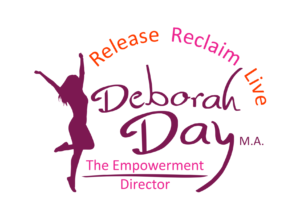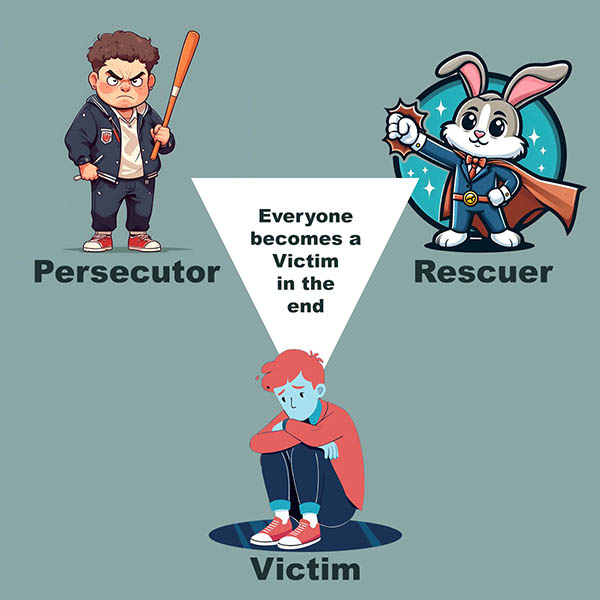Are You Responsible For Your Relationships Problems?
Everyone becomes a Victim in the end.
- Do you feel like you’re always doing all the giving in your relationship and rarely getting anything in return?
- Do you ever feel that no matter what you do, it will never be good enough?
- Are often irritated by people who don’t have much common sense?
Maybe you are living on the Drama Triangle!
One of my favorite tools I use on a daily basis to monitor my interactions with others is called “The Drama Triangle,” by Stephen Karpman. While it is nearly impossible to give full credence to this wonderful perspective in a short blog, I will do my best to give a concise overview.
All unhealthy relationships take place on the Drama Triangle. It describes specific ways one relates to others. There are three positions on this triangle: persecutor, rescuer and victim. While only one position is called victim all positions are actually victim positions of sort. We each have a primary position that tends to dominate our interactions. The “starting gate position,” as named by Karpman, is the one we learn from our history and shows up most commonly in our relationships.
Imagine an upside down triangle. On the upper part of each side of the triangle are the positions of persecutor and rescuer. On the bottom is victim. The persecutor and rescuer are on top because they are both one up positions. Both of these positions require a victim to sustain their position on the triangle. The victim is in a one down position.
The rescuer is the classic codependent. This person is the savior, mediator, helper, fixer, etc. The rescuer has to have someone who needs them to sustain their position. Helping others is how this person defines who they are. Rescuers often grew up not getting their emotional vulnerabilities met or validated. Therefore they hide these emotional vulnerabilities by appearing needless. They secretly keep hoping that if they keep giving and giving, one day someone will be there for them. Their greatest fear is that no one will be there.
The persecutor sustains their one up position through domination. They have to have someone to blame. Hence a victim is necessary for the persecutor to project their unclaimed weaknesses on. Persecutors do this in various ways; lecturing, teaching, blaming, yelling etc. Persecutors believe they are always right. Their greatest fear is being out of control. Persecutors were often raised in abusive shaming households and sometimes take on the qualities of their abuser. This position is often the hardest for one to take ownership of because the persecutor sees them self as a victim who is just trying to protect them self.
The victim position is one in which the person has given up or not claimed their God given ability to make decisions and trust their own competencies. Instead they look to others to guide and lead them. Often victims were raised by a strong rescuer. Victims eat a daily venue of shame and believe they are intrinsically defective or bad. The language of the victim often includes a lot of “yes, but…”
As you read this brief introduction to the three positions on the Karpman Drama Triangle which one do you relate too most? Is it easy to pick your primary position? The ultimate goal is to identify your pattern and learn to grow and change so you don’t fall into these dysfunctional ways of relating to others.



